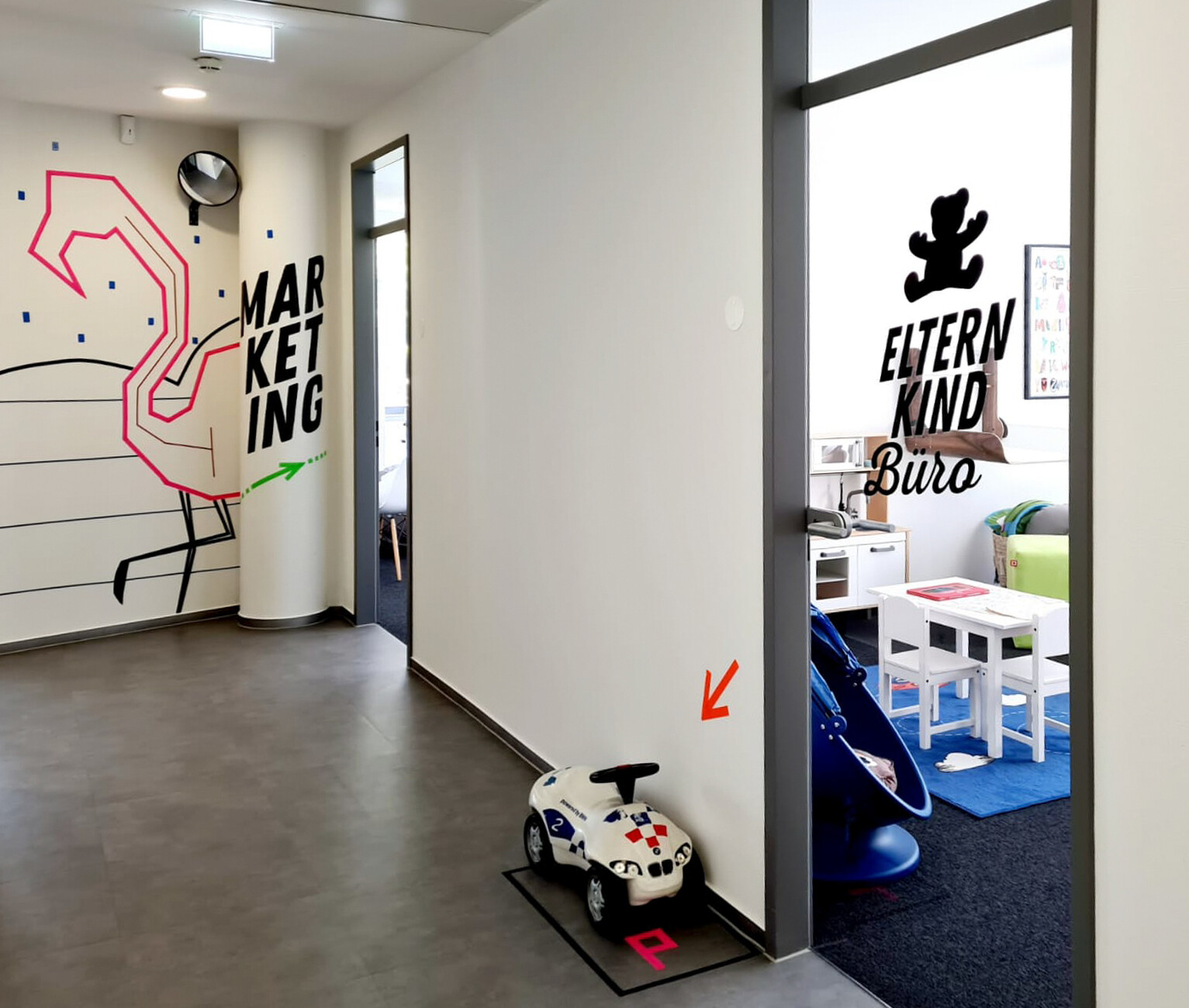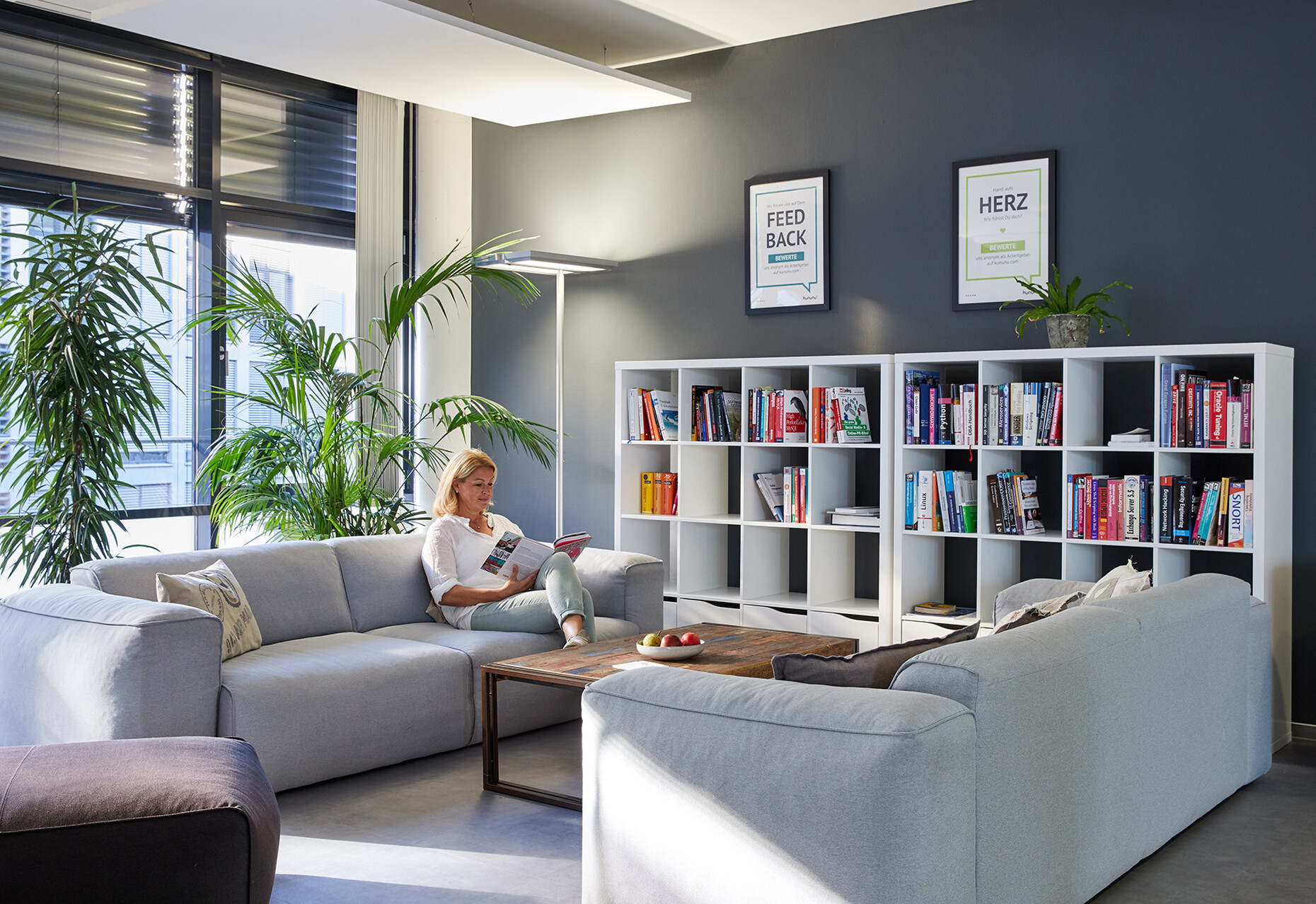STYLEPARK SIGEL
More than just a workplace
“The basic idea behind the BMW Group’s Research and Innovation Center (FIZ) was that everything be close at hand so we are in a position to develop products efficiently and cross-functionally,” explains project manager Klaus Kapp. FIZ Nord is the name of the new building in the north of Munich, which has been designed for interdisciplinary cooperation at BMW as part of the FIZ Future program. Work on future-oriented technologies such as electromobility is key here. A total of 4,800 employees in the specialist departments for drive development and overall vehicle development at the global automotive manufacturer are now gradually relocating to the offices and workshops. The recently completed construction phase 1 alone encompasses a gross surface area of 157,000 square meters. Ensuring rapid information exchange with such huge dimensions is no easy task. The architectural solution in the form of a technically and structurally sustainable building by HENN Architekten came out tops in the international competition – and provides for ample daylight and transparency: open, visually connected spaces that spread out from a central staircase. With its middle platforms, the latter also provides seating areas for brief discussions. On the different floors, there is even semicircular tiered seating, which fosters open communication. “We need architecture which supports the process chains by enabling people from different departments to work together in an agile way,” explains Kapp. As part of this policy, the workshop and the project building were efficiently connected with one another: “interconnection of hardware and brainware”, as Klaus Kapp calls it. And he adds: “The industry is constantly changing, which is why we need flexible room structures, which will ideally still function in the 2050s.”
The layouts of the floors are designed to support different ways of working, such as “Connect”, “Collaborate”, “Relax”, “Concentrate” and “Communicate”. Depending on the task, employees can select the space that best suits them. “For us, it’s important to permit cross-functional working, meaning that multiple specialist departments work together on one and the same topic. To produce a complex product like an automobile we need to facilitate a high level of integrated work among the engineers,” says Kapp. Integration also applies among the colleagues who work remotely too, and is ensured by means of digital solutions as well as alternation between office and remote working. In order to permit agile working in multifunctional spaces, BMW uses smart technologies for optimized planning of the space occupation. Visitors can therefore use an app, for example, for indoor navigation to guide them to their chosen location. For the meeting rooms at FIZ Future, too, BMW has come up with a neat solution: Thanks to a check-in/check-out function, it is very easy to see which spaces are free. If the check-in doesn’t take place, the room is automatically made available in the system. “We are trying to use these organizational tools to make day-to-day work easier for our employees,” says Klaus Kapp.
Management for wellbeing
A functioning flow of information between the teams: This was an aspiration for the web-hosting company Adacor, too, which is based in Offenbach and Essen, and which has already won multiple awards from the internationally active research and consultancy institute Great Place to Work. “Transparent, empathetic communication with employees is the be-all and end-all when it comes to achieving optimum results at work,” says Kiki Radicke, Head of People & Culture at Adacor. For the recent redesign of the 2,400-square-meter office space at its Offenbach site, a combination of team offices and free spaces has been created. Here, six meeting rooms furnished in a homely style offer ample space for internal exchange, and there are call booths and quiet zones for concentrated work or a break. “By opening up the space, we have created a positive work environment,” says Radicke. Although the Offenbach site with its 65 employees decided to maintain fixed workstations rather than introduce desk-sharing, the communally used spaces still offer far more opportunities for exchange than the previous organization spanning multiple levels, she surmises.
What’s more, Adacor understood early on that needs-based use of space and a social corporate culture must go hand in hand for New Work to succeed. Employees were able to contribute their own ideas and preferences for the room allocation and design of the spaces, which included such things as parent-and-child offices with play equipment, a fitness room, and gender-neutral toilet facilities. The web-hosting company has been able to strike the necessary balance between working from home and regular office time over the course of the pandemic thanks to its fundamental digital orientation – although there have still been challenges for Adacor too. “Working from home functions well for us, but there is a lack of the personal interaction that is so crucial for agile working. Meetings via video chat have an agenda, but it is easier to provide assistance or pick up on people’s moods on ground in the office. We are therefore opting for a combination of the two concepts in order to keep the teams connected,” says Radicke. The Human Resources team has spared no effort in making sure the colleagues working from home still feel like part of the company: Hence, for example, weekly notifications are sent to home workers telling them about anything from office supplies to an after-work beer. On top of that, there are regular team events such as film nights, for which the office is instantly repurposed. To ensure employees also remain physically fit, Adacor provides a range of exercise options with personal trainers, which was also available internally and digitally during the course of the pandemic. “Maintaining the sense of community and a positive atmosphere at work is something that has to be actively crafted by the management,” says Radicke, adding: “As an employer, you should not merely have expectations but actually offer something in return.”



















